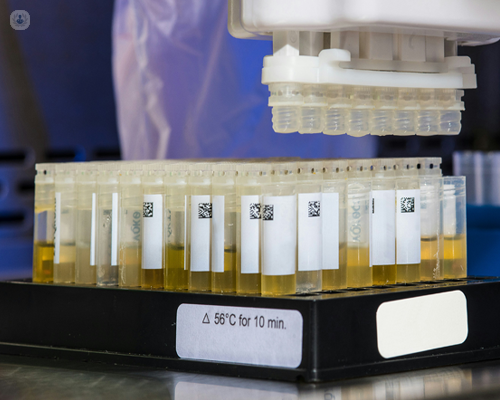Zika virus testing
What is analysed?
Zika virus testing involves the analysis of blood or other body fluids to detect the presence of the Zika virus RNA or antibodies.

What does the result mean?
The result indicates whether the individual has been infected with the Zika virus. Positive results suggest current or past infection, while negative results indicate no detectable Zika virus.
Why undergo the analysis?
Zika virus testing is recommended for individuals who have symptoms consistent with Zika virus infection, especially if they have recently travelled to areas with ongoing Zika virus transmission or have had potential exposure to the virus.
When to undergo the analysis?
Zika virus testing should be performed as soon as possible after the onset of symptoms, typically within the first week. It may also be conducted during pregnancy to monitor the risk of maternal-foetal transmission.
What sample is required?
A blood sample or other body fluids such as urine or saliva may be required for Zika virus testing.
Is any prior preparation necessary?
No specific preparation is usually necessary for Zika virus testing. However, individuals should inform healthcare providers about any recent travel history and symptoms.
How is it used?
Zika virus testing is used to confirm Zika virus infection, guide patient management and treatment decisions, and implement appropriate public health measures.
What are the normal values?
There are no "normal" values for Zika virus testing. A positive result indicates the presence of Zika virus RNA or antibodies, while a negative result suggests no detectable Zika virus.
Zika Virus Testing Reference Table
| Zika Virus testing result | Interpretation |
| Positive | Presence of Zika virus infection |
| Negative | Absence of detectable Zika virus |
This table provides a simplified interpretation of Zika virus testing results, aiding healthcare professionals in diagnosing and managing Zika virus infection effectively.
What do altered values signify?
Positive Zika virus test results signify current or past infection with the Zika virus. In pregnant women, positive results may indicate the risk of maternal-foetal transmission.